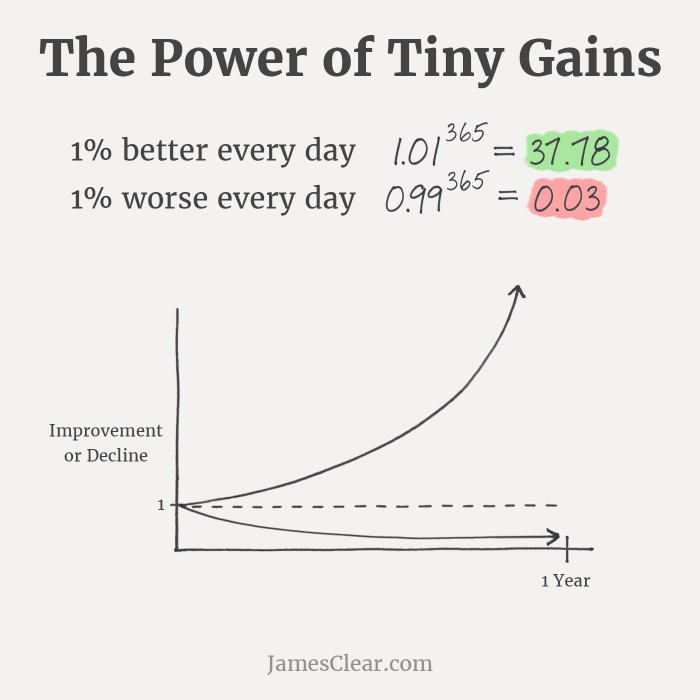Proof-of-habit
Table of Contents
Disclaimer
(DRAFT/DISCLAIMER — This post is a submission to a competition on 1729.com. No prizes will be awarded for any submissions at this time. Learn more at 1729.com/decentralized-task-creation.)
Habits
Design better habits for yourself and earn BTC
Intro
People are creatures of habit, you and me and everyone else. It only makes sense, in an ever-changing and complex work, the mind simply can’t keep up with it. It needs habits to remove complexity from daily life, so it can focus it’s mental capacity on the things that matter.
In that respect, habits work a little bit like heuristics, rules of thumb that the brain works to make a great number of daily decisions, without again evaluating every possible attribute and outcome. When people run in a certain direction, chances are that you will run too. It’s safer to run first and then evaluate second, since chances are that people run for a good reason.
The thing is that not all heuristics are good and likewise, not all habits. A great number of them are created through roads that we seldom control, like smoking which is a combination of psychological habit and a chemical necessity for Nicotine. Junk food is the same, rending our dopamine system out of control, as the junk food makes us produce inordinate levels of dopamine. Salt & sugar were rare in our ancestral homes and thus the brain evolved to reward highly the consumption of those kinds of foods. It simply hasn’t evolved to cope with over-salty or over-sweet food.
If you think about it, a habit is no more than a system. A repetitive process that you do to achieve a certain goal. Although the goal can be long-term (e.g learn Javascript), if you focus on the system itself, the habit, you know you will reach the destination almost deterministically. Moreover, by focusing on your habits you are considerably happier. Instead of winning once (learn javascript), you win every day (spend 1 hour learning javascript). By changing your goal, not only you reach the same destination, but you do it in a more fulfilling way.
If you have watched Westworld, it has a great analogy between humans and the robots, named “hosts”. If you take the sum of our habits, you will see that a lot of us live in loops, either pleasant or unpleasant, but in loops all the same. Every day, week, month, year has a low level of variance, performing the same tasks day-in, day-out, either positive (go to the gym) or negative (fight with my partner). By changing our habits, by changing our loop, we can effectively alter the entirety of our life, without having to come up with a grandiose life plan, which is both extremely hard and intimidating.
You can think of a habit as a 1% daily improvement. Over a year, it can have a huge difference. That’s math.

We start by focusing on Now, what systems I can implement Now that will have a positive effect in my life. The goals we will set are not about a destination, but it’s about a system. If we do it right, we do it mindfully, we can alleviate the stress of life, since we know that the systems we have implemented will take us to the destination that we want. Thus, we no longer have to daydream about an ideal future, we just have to focus on Now.
So, what’s the task.
One of the most influential books I have read on Habits, is no other by the “Atomic Habits”. It’s very easily digestible, science-informed and practical to the bone, the ideal combination for a beginner practitioner of habit design. The book gives an entire framework on how to introduce new habits and remove old ones.
Do the following and earn $300 in BTC:
- read the “Atomic Habits”
- make a review about it
- and implement it for 1 month.
Implementation
You will keep a daily log of this process by:
- logging habits (e.g workout)
- taking notes on what you like (or don’t like) and anything interesting.
and share:
- A post at the start, stating your habit goals, the systems that have implemented and how you plan to tackle known and unknown challenges. Stating why you want to start/stop each habit is a great way to be mindful of your choices.
- A post at the end (or 2 by-weekly posts), where you publish the actual habit log and notes from your personal reflection. What you could improve, what worked and how you feel about this exercise.
Logging habits is a great way to visually see your progress and keep yourself accountable, but also note-taking will help you visualize your mental progress through the month. Of-course, in case you don’t feel like sharing a certain habit, you can log it anonymously, but log it and share the progress all the same.
Sharing is caring
Sharing this exercise has a double benefit, at first it’s a great personal commitment tool. The brain is hardwired to appear consistent to the outside world, so it will go an extra mile just to keep you on the track. Exactly the thing we need when doing something new which we can easily give up.
The second benefit is to show to the rest that it’s not so hard to break away from bad habits or to introduce positive change in our lives. Doing a daily run in the park is not so hard as we make it to be and certainly time is not an issue. It’s a matter of priorities, but that’s probably to be a whole task on it’s own.